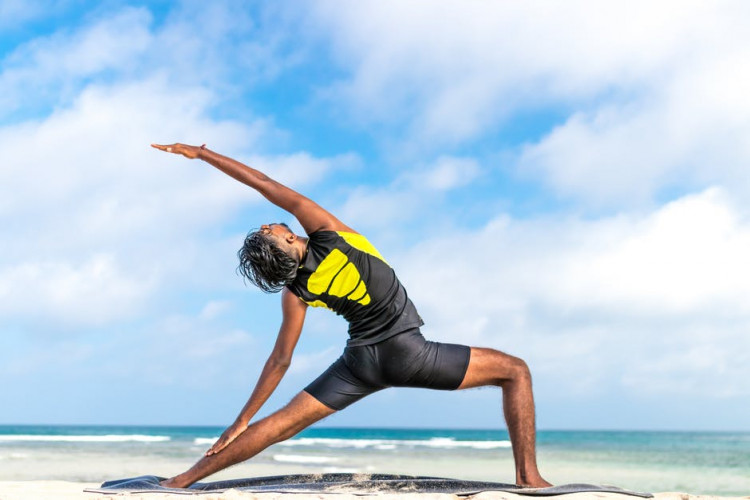There is nothing like a good stretch upon waking up in the morning, after a long day of sitting, and during exercise. Stretching provides a whole host of benefits for the body including posture, blood circulation, and so much more.
For starters, frequent stretching prevents tightening of the muscles and joints, which then gives you good posture and relief from stress. When you have good posture, you are less likely to feel backaches and discomfort. You also feel generally at ease moving around and with less pain.
It is important though to avoid the static stretch, which is the "stretch and hold" position. Michael Ross M.D., medical director for Rothman Institute Performance Lab, suggests doing a range of motion exercises like shoulder shrugs, knee lifts, and wrist bends to reap the benefits.
Speaking of muscles, stretching also increases blood flow to your muscles and improves blood circulation. Blood flowing to your muscles provide nutrients and gets rid of waste byproducts in the muscle tissue. Any muscle injury can benefit from stretching since it shortens recovery time. Likewise, blood flows through your brain even during a light stretch and this invigorates and makes you feel less sluggish.
Moreover, stretching improves fine-muscle coordination and balance. It helps you keep mobile and less prone to trip on yourself or suffer injuries from a fall. A study conducted on 42 college students to see how stretching would impact the length of time they could stay on a contraption called a stabilometer revealed those who stretched for 30 minutes beforehand were able to balance longer compared to those who just sat down.
This goes with incorporating stretching in your pre and post workout routine. It lets you have a better range of mobility and motion, which translates to more effective workouts. You get more out of your exercise since you can perform squats and lunges better and without the risk of an injury.
"Stretching can't totally eliminate injury, but it could certainly help from a mindset perspective."
Not just during exercise, stretching also benefits your daily performance. As you get older, you feel less flexible, but stretching can help maintain your flexibility. This means you feel less tired and can easily perform simple tasks such as bending down or lifting packages.
Lastly, stretching helps keep your blood glucose levels in check. This especially benefits those with diabetes who does a few stretches before exercise. It is important to remember though that a proper stretch does not involve pain and that it should not be forced. If you are in pain, then you are doing it wrong.






